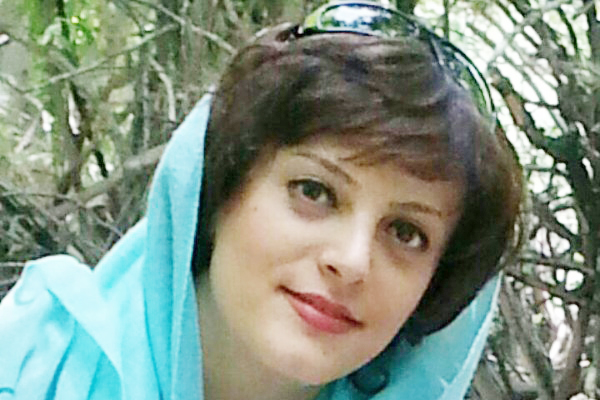Source: www.hra-news.org
Translation by Iran Press Watch

HRANA News Agency – Yekta Fahandezh Sadi, Bahá’í resident of Shiraz, was sentenced to 11 years imprisonment after retrial by Branch 2 of the Revolutionary Court of Tehran.
According to the HRANA News Agency, human rights activists News Agency in Iran, Yekta Fahandezh Sadi, a Bahá’í citizen residing in Shiraz, was sentenced to 11 years imprisonment by Branch 2 of the Revolutionary Court of Shiraz.
Earlier Yekta Fahandezh Sadi was sentenced to endure a 5-year prison on charges of “propaganda against the regime” and “assembly and collusion” by Branch 1 of the Revolutionary Court in the city.
A source close to this Bahá’í citizen in this regard told Hrana Reporter: “Ms. Fahandezh Sadi was arrested in early 2014 and was sentenced to 5 years imprisonment after 56 days of detention. The sentence ultimately reduced to 2 years imprisonment and 3 years of suspended-imprisonment in the Appeals Court and was referred to Branch 2 of the Shiraz Revolutionary Court after being overturned by the Supreme Court. The 11-year prison sentence was issued after re-examining by the branch and increasing the ruling for the same case. ”
According to this informed source, “This Bahá’í citizen, in addition to this case has other cases under review at the Revolutionary Court of Shiraz.”
Hrana on March 16, 2014, reported of her house search, seizure of her personal belongings and arrest of this Bahá’í citizen by the officials of the Ministry of Intelligence.
This Bahá’í citizen who was expelled from the University of Payam-e Noor in Shiraz on seventh semester in English in 2013 because of being a Bahá’í was in detention for 83 days in February 2012, at the Shiraz Intelligence detention center (No. 100) and was released after placing the issued bail of 100 Million Toumans (approximately US $10,000).
In recent months, a new wave of pressure on Bahá’í citizens has been initiated in the shape of summons, arrests, interrogations and sentencing in various cities of the country.
On November 19 this year, Hrana released a detailed report of the pressure on the Bahá’í community and the arrest of citizens believing in this religion. According to the report, Bahá’í citizens in different cities of the country have faced a new wave of oppression and human rights violations since the beginning of the year:
- Renunciation of at least 58 Bahá’í students from continuing education, over this year’s National College Entrance exam
- Expulsion of at least 11 Bahá’í students at different levels from universities
- Prohibition of economic activity and the dismissal of at least 6 Bahá’í citizens from their own workplace or private companies
- Arrest of 72 Bahá’í citizens by security forces
- Condemnation of 24 Bahá’í citizens to endure 46 years of imprisonment and 9 years of exile
- Provision of extensive so-called cultural and media products in line with the persecution of Bahá’ís
- Closure of and the continuation of the sealing off of Bahá’ís shops, destruction of graves
- Preventing the burial of Bahá’í citizens in Bahá’í cemeteries In different cities
it has only been part of the upsurge in pressure on the citizens of this community since the beginning of this year until the 19th of November.
Bahá’í citizens in Iran are denied the freedoms associated with religious beliefs, a systematic segregation when in accordance with Article 18 of the Universal Declaration of Human Rights and Article 18 of the International Covenant on Civil and Political Rights, every person has the right to freedom of religion and freedom to change faith or belief, as well as freedom of religious expression, individually or collectively, and publicly or in secret.
According to unofficial sources in Iran, there are more than three hundred thousand Bahá’ís, but the Iranian constitution recognizes only Islam, Christianity, Judaism and Zoroastrianism and does not recognize Bahá’ísm. For this reason, Bahá’ís rights in Iran have been systematically violated in recent years.
Leave a Reply